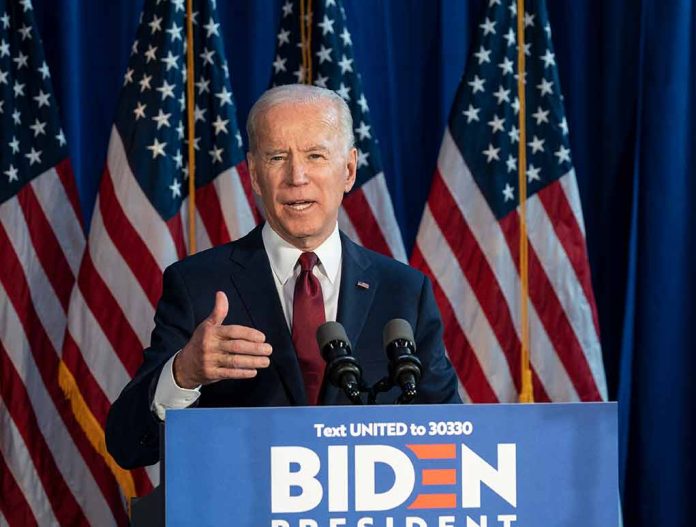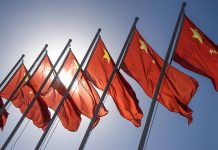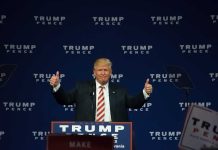
President Biden is set to block the $15 billion takeover of U.S. Steel by Japan’s Nippon Steel, citing national security concerns and potential economic fallout.
At a Glance
- Biden administration preparing to block Nippon Steel’s $15 billion acquisition of U.S. Steel
- Decision based on national security concerns and potential economic impact
- Move aligns with Biden’s strategy to protect American jobs and key industries
- U.S. Steel shares plummeted 23% following reports of the expected block
- Decision could have broader implications for U.S.-Japan relations and foreign investment
Biden’s Decision to Block U.S. Steel Takeover
President Joe Biden is poised to intervene in the proposed $15 billion acquisition of U.S. Steel by Japan’s Nippon Steel. The deal, which has been under scrutiny by the Committee on Foreign Investment in the United States (CFIUS), is expected to be blocked due to significant national security concerns and potential economic repercussions. This move aligns with Biden’s broader strategy to safeguard American jobs and protect key industries from foreign control.
The decision to block the deal comes after months of review and opposition from various quarters, including the Biden administration, lawmakers, and labor unions. The president has previously stated that U.S. Steel should remain an American-owned company, emphasizing its importance to national security and the domestic economy.
Breaking news: President Joe Biden is preparing to announce that he will formally block Nippon Steel’s proposed acquisition of U.S. Steel, according to three people with knowledge of the matter, a move that would pose a setback for relations with Japan. https://t.co/BZn3wHDcEc
— The Washington Post (@washingtonpost) September 4, 2024
National Security and Economic Concerns
The administration’s primary concern revolves around the potential risks associated with foreign ownership of a critical infrastructure asset like U.S. Steel. Steel production is vital for various sectors, including defense and essential industries, making it a matter of national security. The fear is that foreign control could compromise the United States’ ability to maintain independent and robust steel production capabilities, especially in times of crisis or conflict.
“It’s a very complex, nuanced deal driven by politics — the financials almost don’t matter at this point,” said Jonathan Grady, the founding principal of the consultancy firm Canary Group, told CBS MoneyWatch.
Economically, there are concerns about the potential closure of U.S. Steel plants and the loss of American jobs if the deal were to go through. The steel industry plays a crucial role in the economies of several swing states, particularly Pennsylvania, making it a politically sensitive issue as well.
Political Implications and Labor Union Opposition
The proposed takeover has faced opposition from across the political spectrum. Both President Biden and former President Donald Trump have expressed their disapproval of the deal. Vice President Kamala Harris has also stated that U.S. Steel should remain “American owned and American operated.” This bipartisan opposition underscores the political significance of the steel industry, especially in key battleground states.
“The Japanese players appear not to be fully aware of the situation they got themselves in, buying a Pennsylvania steel company in the middle of a presidential election,” Jonathan Grady, the founding principal of the consultancy firm Canary Group, told CBS MoneyWatch.
The Steelworkers Union, a powerful force in American labor politics, has been vocal in its opposition to the deal. Their concerns primarily revolve around job security and the potential for production to move overseas under foreign ownership. This opposition carries significant weight, particularly in Pennsylvania, a crucial swing state in upcoming elections.
Economic Impact and International Relations
The decision to block the takeover has immediate economic consequences, with U.S. Steel’s stock price plummeting by over 23% following reports of the expected block. This sharp decline highlights the market’s sensitivity to geopolitical considerations in major business deals.
U.S. Steel Shares Tank Over 20% After Reports Biden Will Block Nippon Steel Takeoverhttps://t.co/tB29T5HfRW pic.twitter.com/pBPNMvmsoV
— Forbes (@Forbes) September 4, 2024
Beyond the immediate market reaction, there are concerns about the long-term implications for U.S.-Japan relations and the broader landscape of foreign investment in the United States. Some legal experts warn that blocking the deal could harm the U.S.’s reputation for open markets and potentially deter future foreign investments.
“The U.S. will lose all standing to argue that F.D.I. screening regimes around the world should not be politicized” said John Kabealo
As the situation continues to unfold, the Biden administration faces the challenge of balancing national security concerns with the principles of free market economics and international trade relations. The final decision on this high-stakes deal will likely have far-reaching consequences for the steel industry, U.S.-Japan relations, and the broader landscape of foreign investment in critical American industries.
Sources
- U.S. Steel shares plummet amid questions over the fate of its merger with Nippon Steel
- Biden Expected to Block U.S. Steel Takeover
- U.S. Steel Shares Tank Over 20% After Reports Biden Will Block Nippon Steel Takeover
- U.S. Steel shares plummet amid questions over the fate of its merger with Nippon Steel
- Biden to block Nippon Steel acquisition of US Steel
- Biden preparing to block Nippon Steel purchase of U.S. Steel
- President Joe Biden to block Nippon Steel’s proposed takeover of US Steel









